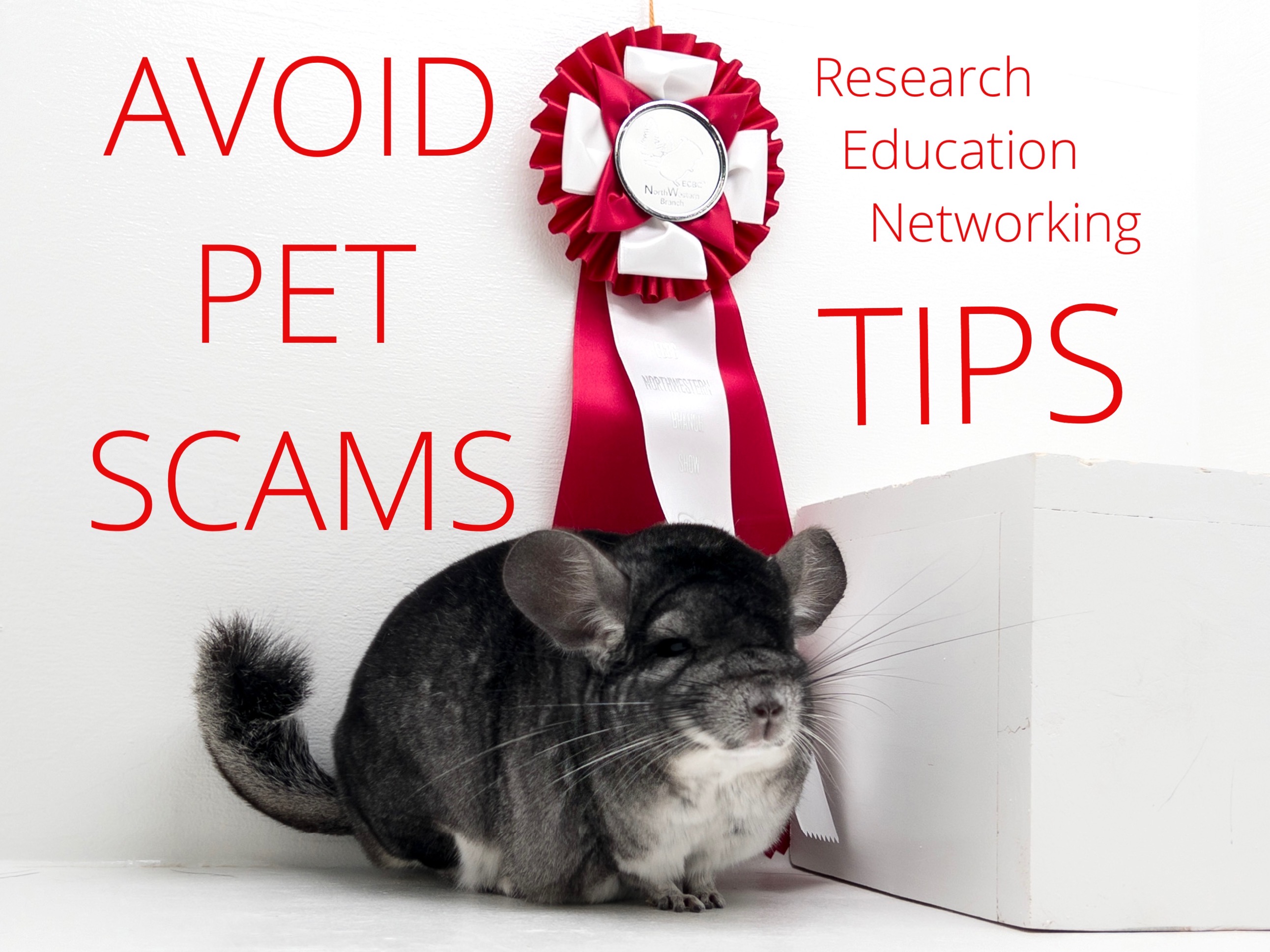AVOIDING PET SCAMS. In the digital age, where the search for a new pet often begins online, the waters are murky with the presence of scammers poised to prey on the unsuspecting and the well-intentioned. As you embark on your quest to find a chinchilla companion, it’s paramount to use caution to avoid the snares set by scammers. Understanding how pet scams operate and arming yourself with knowledge can be your saving grace when bringing home your new furry companion.
Pet scammers lure their victims with captivating ads showcasing adorable pets at prices that seem too good to resist. These criminals often create a sense of urgency, claiming that immediate action is required to adopt the animal due to moving, health, or other pressing issues. Once hooked, the victim is asked to pay upfront fees for shipping, insurance, or other fictional services. Sadly, the end of this tale often results in financial loss with no pet companion to show for it.
In the journey to adopt a chinchilla, it’s crucial to stay informed and vigilant against scams. Here’s a straightforward, factual guide to help you avoid common pitfalls and ensure you’re engaging with reputable sources:
TIP #1. RESEARCH THE BREEDER. Conduct thorough research on the breeder or seller. Look for reviews, testimonials, and any red flags on social media or forums. A reputable breeder will have a traceable history and a positive presence in the chinchilla community.
TIP #2. AVOID IMPULSE BUYING. Scammers thrive on creating a sense of urgency. Take your time, ask questions, and don’t be pressured into making quick payments.
TIP #3. VERIFY THE WEBSITE. Check the legitimacy of the website. Look for secure payment options (look for HTTPS in the URL), clear contact information, and a professional layout. Be wary of sites with numerous grammatical errors, broken links, or those that only use stock images.
TIP #4. VERIFY LEGITIMACY. Request the full name or business name of the breeder and conduct online searches to uncover any history of their breeding practices and reputation in the community.
TIP #5. CONSISTENCY ACROSS ONLINE PLATFORMS. Ensure the breeder’s online presence is consistent. Their website, social media, and any advertising should align in terms of contact information (phone number and email), the health and welfare of the animals, and breeding practices.
TIP #6. UNDERSTANDING THE UNIVERSAL NUMBERING SYSTEM. Reputable breeders use a specific universal numbering system for their animals, which is crucial for tracking genetics and health. If a breeder is unfamiliar with this system or misstates the numbering system, they are not professionally involved in chinchilla breeding. ALL REPUTABLE BREEDERS UTILIZE THIS SYSTEM.
TIP #7. BEWARE OF TO-GOOD-TO-BE-TRUE DEALS. If the price seems significantly lower than the market value, it might be a scam. Quality care of chinchillas justifies their cost.
TIP #8. PAYMENT METHODS. Be cautious of breeders asking for payment through wire transfers, gift cards, or other untraceable methods. These are red flags for scams. Reputable breeders will have transparent and secure payment methods. It is common for reputable breeders to require a non-refundable deposit, typically between 25% - 50% once you have made the final choice to take home a chinchilla. The details of this deposit should be clearly stated on their website (don’t place a deposit until you have verified through the tips here any other methods that the breeder is legitimate).
TIP #9. CHECK REPUTABLE BREEDER DIRECTORIES. Look for the breeder’s name on directories maintained by recognized organizations like the Empress Chinchilla Breeders Cooperative (ECBC). Being listed in such directories is a strong indicator of a breeder’s reliability. If you don’t see the breeder listed, reach out to organizations like Empress Chinchillas and ask if the person in question is reputable. The chinchilla industry is a small, close-knit community. This is also a great place to get referrals to reputable breeders in your area.
By following these steps, you’re not only protecting yourself from scams but also contributing to the ethical breeding and treatment of chinchillas. Choosing a reputable breeder ensures you get a healthy, well-cared-for pet while supporting responsible practices in the chinchilla community. As a responsible future pet owner, your diligence helps promote the well-being of chinchillas and ensures the integrity of the breeding process.

